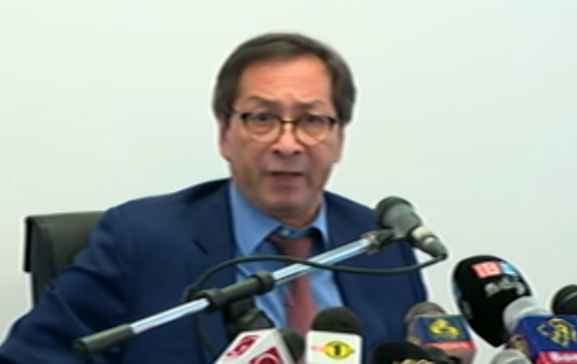May, 16, 2017

Removal of customs duties will be conditional on continued commitment to sustainable development, human rights and good governance.
The European Union will remove a significant part of the remaining import duties on Sri Lankan products entering the EU market in exchange for the country's commitment to ratify and effectively implement 27 international conventions on human rights, labour conditions, protection of the environment, and good governance. These one-way trade preferences will consist of the full removal of duties on 66% of tariff lines, covering a wide array of products including textiles and fisheries. The removal of duties will come into force the day after publication in the official Journal of the European Union which is expected this week. These preferences come under a special arrangement of the EU Generalised Scheme of Preferences, known as GSP+. This arrangement is designed to support developing countries by fostering their economic development through increased trade with Europe and providing incentives to take tangible measures towards sustainable development.
Trade Commissioner Cecilia Malmström said: "Granting GSP+ to Sri Lanka aims to provide the opportunity to develop further economically, including creating more and better jobs for all Sri Lankans, on a sound foundation that advances human and labour rights, and in a manner that is environmentally sustainable. It is also a vote of confidence from the European Union that the Sri Lankan Government will maintain the progress it has made in implementing the international conventions. At the same time, no one is pretending that the situation is perfect. The process of replacing the Prevention of Terrorism Act still needs to be completed. There are still too many incidents of torture, there are still children being forced into marriage, there are still laws that discriminate against sections of Sri Lankan society. We want to see an end to these practices. The EU will work closely with the Government and Non-Government Organisations to rigorously monitor progress".
If Sri Lanka continues to make the necessary progress, then the country has the chance to benefit from the scheme until it achieves Upper Middle Income country status for three consecutive years. On current trends, that should mean that Sri Lanka will benefit from GSP+ until at least 2021. The EU is Sri Lanka's biggest export market accounting for nearly one-third of Sri Lanka's global exports. In 2016, total bilateral trade amounted to almost €4 billion, and EU imports from Sri Lanka amounted to €2.6 billion. The removal of import duties will provide a total of immediate benefits worth in excess of EUR 300 million a year. The value of the scheme could be worth many times more, particularly if Sri Lanka uses the opportunity to diversify its economy.
The EU is working with the Government to support the development of SMEs to achieve the standard required to export to the European market, and take full advantage of GSP Plus. The EU will also build on its existing work with the Government and NGO partners to ensure that the benefits of GSP+ accrue to as wide a section of the population as possible, including to areas such as the North and East that were most affected by the war and those areas in the south that have historically been the poorest.
Granting access to the GSP+ scheme does not mean that the situation of the beneficiary country with respect to the 27 international conventions is fully satisfactory. Instead, it offers the incentive of increased trade access in return for further progress towards the full implementation of those conventions, and provides a platform for engagement with beneficiaries on all problematic areas. As is the case for all countries benefitting from GSP Plus, the removal of customs duties for Sri Lanka will be accompanied by rigorous monitoring.
List of Conventions to qualify for 'GSP Plus'
1. International Covenant on Civil and Political Rights
2. International Covenant on Economic Social and Cultural Rights
3. International Convention on the Elimination of All Forms of Racial Discrimination
4. Convention on the Elimination of All Forms of Discrimination Against Women
5. Convention Against Torture and other Cruel, Inhuman or Degrading Treatment or Punishment
6. Convention on the Rights of the Child
7. Convention on the Prevention and Punishment of the Crime of Genocide
8. Minimum Age for Admission to Employment (N° 138)
9. Prohibition and Immediate Action for the Elimination of the Worst Forms of Child Labour (N° 182)
10. Abolition of Forced Labour Convention (N° 105)
11. Forced Compulsory Labour Convention (N° 29)
12. Equal Remuneration of Men and Women Workers for Work of Equal Value Convention (N° 100)
13. Discrimination in Respect of Employment and Occupation Convention (N° 111)
14. Freedom of Association and Protection of the Right to Organise Convention (N° 87)
15. Application of the Principles of the Right to Organise and to Bargain Collectively. Convention (N° 98)
16. International Convention on the Suppression and Punishment of the Crime of Apartheid
17. Montreal Protocol on Substances that deplete the Ozone Layer
18. Basel Convention on the Control of Transboundary Movements of Hazardous Wastes and Their Disposal
19. Stockholm Convention on persistent Organic Pollutants
20. Convention on International Trade in Endangered Species
21. Convention on Biological Diversity
22. Cartagena Protocol on Biosafety
23. Kyoto Protocol to the UN Framework Convention on Climate Change
24. UN Single Convention on Narcotic Drugs (1961)
25. UN Convention on Psychotropic Substances (1971)
26. UN Convention against Illicit Traffic in Narcotic Drugs and Psychotropic Substances (1988)
27. Mexico UN Convention Against Corruption
Video Story